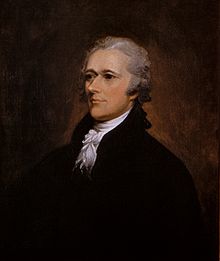March 7 is:
National Cereal Day
322 BC – Aristotle, the Greek philosopher, died. He had been a student of Plato and a teacher of Alexander, the Great. His writings cover many subjects – including physics, biology, zoology, metaphysics, logic, ethics, aesthetics, poetry, theater, music, rhetoric, linguistics, politics and government – and constitute the first comprehensive system of Western philosophy.
In 1530, King Henry VIII‘s divorce request was denied by the Pope. Henry then declared that he, not the Pope, was supreme head of England’s church.
In 1644 Massachusetts established the first 2-chamber legislature in the colonies.
Captain James Cook first sighted the Oregon coast at Yaquina Bay in 1778.
 Publication of Federalist Paper #65: The Powers of the Senate. This and all of the remaining Federalists Papers were written by Alexander Hamilton in 1788. In Paper #65 Hamilton explained why delegates to the Constitutional Convention decided that the power of impeachment belonged in the Senate. Articles of Impeachment would originate in the House and a trial would be held in the Senate.
Publication of Federalist Paper #65: The Powers of the Senate. This and all of the remaining Federalists Papers were written by Alexander Hamilton in 1788. In Paper #65 Hamilton explained why delegates to the Constitutional Convention decided that the power of impeachment belonged in the Senate. Articles of Impeachment would originate in the House and a trial would be held in the Senate.
Charles Miller patented 1st U.S. sewing machine to stitch buttonholes in 1854. In his patent specification, Miller describes the three different stitches, “button-hole stitch, whip stitch or herring-bone stitch,” that can be mechanically sewn to finish the buttonhole.
Baseball, in 1857, decided 9 innings constituted an official game, not 9 runs.
Birthday of Maurice Joseph Ravel (March 7, 1875), French composer of Bolero
Alexander Graham Bell was granted a patent for the telephone on March 7, 1876.
March 7, 1912 – Roald Amundsen announced that his Norwegian expedition successfully reached the South Pole on December 14 of the previous year.
1933 – The board game Monopoly was invented and trademarked by Charles Darrow in Atlantic City. From Today in Science, “it was preceded by other real estate games. The first, called The Landlord’s Game, was invented by Lizzie Magie of Virginia (patented 1904). In it, players rented properties, paid utilities and avoided “Jail” as they moved through the board. Darrow set about creating his own version, modeled on his favorite resort, Atlantic City. He made numerous innovations for his game, which had a circular, cloth board. He color-coded the properties and deeds for them, allowing them to be bought, not just rented. The playing pieces were modelled on items from around his house. It was mass marketed by Parker Brothers in 1935.”
